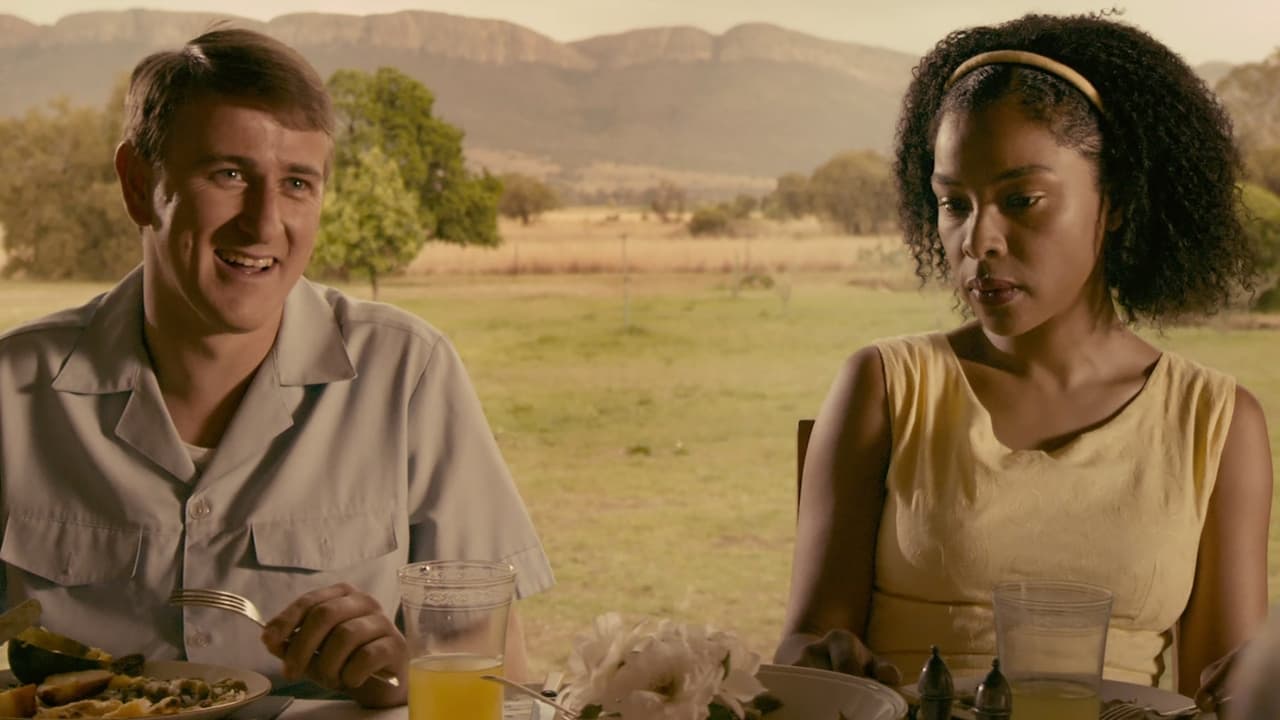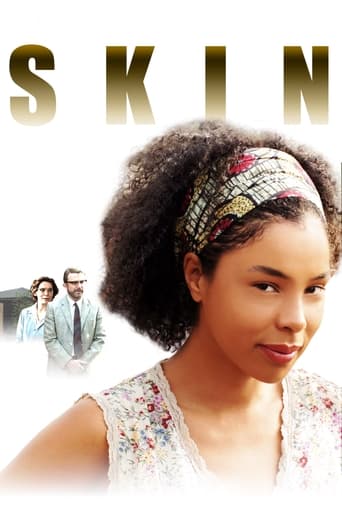Cathardincu
Surprisingly incoherent and boring
Yash Wade
Close shines in drama with strong language, adult themes.
Jemima
It's a movie as timely as it is provocative and amazingly, for much of its running time, it is weirdly funny.
Francene Odetta
It's simply great fun, a winsome film and an occasionally over-the-top luxury fantasy that never flags.
gelman@attglobal.net
This story about a dark-skinned girl born to white Afrikaners during the apartheid era will come as a revelation to anyone who has forgotten what South Africa was like before the transformation brought about by Nelson Mandela and his colleagues. Not that South Africa is out of the jungle of racial conflict; it certainly isn't. But one hopes that the fate inflicted on Sandra Liang because of her color could happen today. The story is gripping. The direction and the photography are efficient. The two best known actors in this film, Sophie Okenado ( Rawanda) and Sam Neill, are excellent as the adult Sandra and her Afrikaner father. But other unfamiliar players are also very good
curtis21
Sandra Laing was born to a white mother and father yet she had the skin color of a black person. Although Sandra's mother bore a baby boy that came out to be dark like Sandra, the movie stayed focused on Sandra and the parents. The movie showed that great perseverance can make just as much difference as the obstacles. The plot focused on the obstacle of being colored in a white world or family for that matter as this white family tried to raise their daughter that looked black in South Africa. Black people were being treated as beneath whites but Sandra was taught by her father to "never give up".Sandra's parent had her classified as white with the Government but all of the hardships Sandra and the family face forces Sandra to question her Identity where Sandra eventually finds comfort with a black man names Pedrus. Sandra showed great strength throughout the movie as the movie had highs and lows from fun or intense moments to feeling the sad emotions. It was presented in such a way that the audience could feel what was going on in many scenes. The acting was great with the facial expressions as all of the actors in the movie assumed their character.
ihrtfilms
Set during the Apartheid era in South Africa, this film tells the story of Sandra Laing who is born black to white parents and spends much of her life fighting to be recognized. As a young school girl she is placed in a whites only school, yet is frowned upon; her parents don't 'see' her as black, even here birth certificate states she is white. But people see her differently and soon she is thrown from the school. As an older teenager she starts dating, with her parents choosing white men for her to see, but she is attracted to a young black man, whom she eventually falls in love with.The story is tragic on so many levels. Sandra is treated so differently by everyone, including her family. She is classed as white, but is black and because of laws she is not allowed to marry a black man or go to buy a dress in a white's shop. The levels of racism are so multilayered, it's disturbing. Her father refuses to let her see a black man and threatens to kill him, he wants her to 'be' white. Racism towards one's own child tears the family apart and she settles down with Petrus and has children, but her estrangement from her family and especially her mother haunts her and this becomes a source hatred for Petrus, who thinks she is betraying him by longing to be with her white family. Racism upon racism.The film is a well acted, beautifully shot one that portrays a singular life of despair among an era of despicable human behaviour. Towards the end it becomes quite moving as change sweeps a new South Africa and Sandra tries to reunite with her estranged family and makes you hope that events such as those never occur again.More of my reviews at iheartfilms.weebly.com
jdesando
"I'm not black!" SandraThe color of Sandra Laing (Sophie Okonedo) colors her life beyond what anyone might dream possible. Born black of white parents Sannie (Alice Krige) and Abraham (Sam Neill), who own a rural general store, Sandra is the center of Skin, a drama played against the harrowing years of Apartheid. She is breaking the law if she lives as a black with whites, so her dad devotes years to have her officially declared white.But even for isolated Afrikaners like the Laings, life is complicated, especially when Sandra falls in love and has a baby with a black farmer, Petrus (Tony Kgoroge). Although the film becomes melodramatic or operatic at times, underneath is a core of truth about a human condition that fosters racial hatred and enslavement even in the modern world. It takes a Mandela to free blacks in Africa, but it is up to the strong of heart like Sandra to make that freedom a reality, day by day.The film, sometimes playing like J. M. Coetzee Coeteze's violent white versus black world, does a credible job showing the contradictions in characters like her dad, who enforces the separation of black and whites but seems to know he is wrong. Yet, he cannot help himself; this is the strength of the film, the consistent struggle between righteous tradition (read separation) and goodness and fairness. Although we know apartheid will end, and Abraham will be a victim of his own willfulness, the film manages to retain the sense of futility for blacks, artistically not easy to do when history has made its statement.The goodness often manifests itself in her mother, a loving woman driven by her husband to lose her daughter and watch him suffer remorse too strong to describe. The truth lies in the pain that an oppressed people have endured for hundreds of years on both sides of the Atlantic. For that truth, Skin is worth experiencing.

